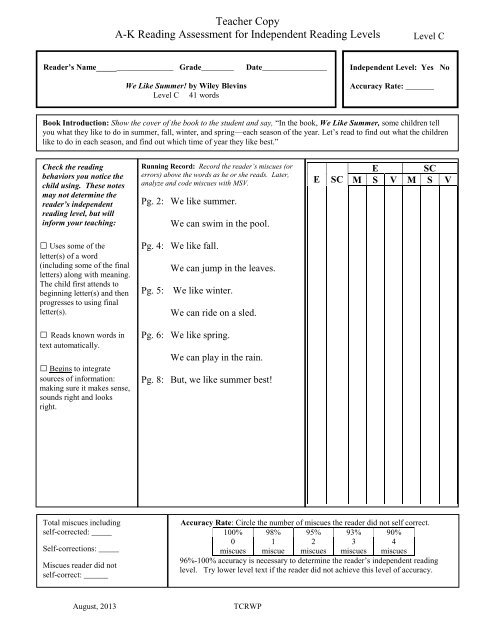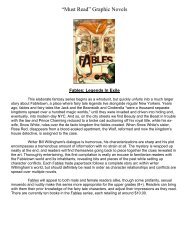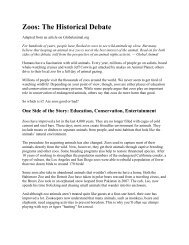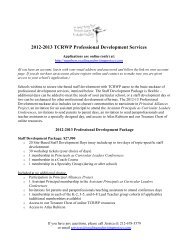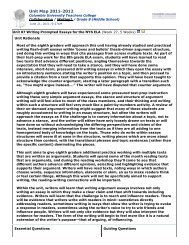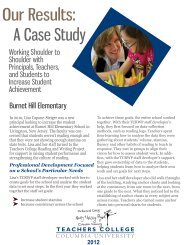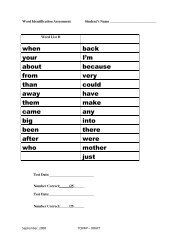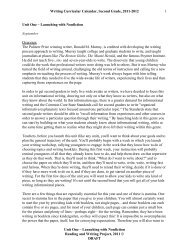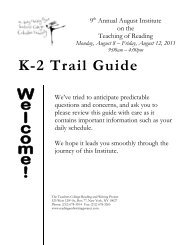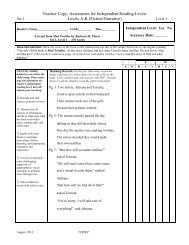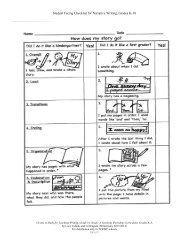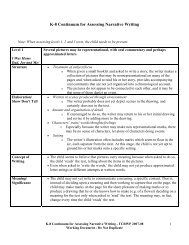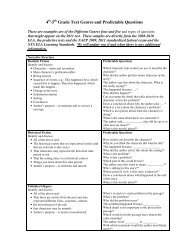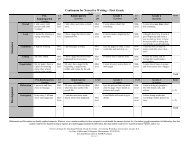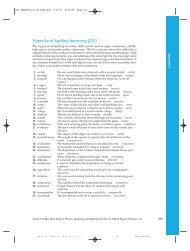We Like Summer - Scholastic (Running Record).pdf - The Reading ...
We Like Summer - Scholastic (Running Record).pdf - The Reading ...
We Like Summer - Scholastic (Running Record).pdf - The Reading ...
You also want an ePaper? Increase the reach of your titles
YUMPU automatically turns print PDFs into web optimized ePapers that Google loves.
Teacher Copy<br />
A-K <strong>Reading</strong> Assessment for Independent <strong>Reading</strong> Levels<br />
Level C<br />
Reader’s Name___________________ Grade________<br />
Date________________<br />
Independent Level: Yes No<br />
<strong>We</strong> <strong>Like</strong> <strong>Summer</strong>! by Wiley Blevins<br />
Level C 41 words<br />
Accuracy Rate: _______<br />
Book Introduction: Show the cover of the book to the student and say, “In the book, <strong>We</strong> <strong>Like</strong> <strong>Summer</strong>, some children tell<br />
you what they like to do in summer, fall, winter, and spring—each season of the year. Let’s read to find out what the children<br />
like to do in each season, and find out which time of year they like best.”<br />
Check the reading<br />
behaviors you notice the<br />
child using. <strong>The</strong>se notes<br />
may not determine the<br />
reader’s independent<br />
reading level, but will<br />
inform your teaching:<br />
<strong>Running</strong> <strong>Record</strong>: <strong>Record</strong> the reader’s miscues (or<br />
errors) above the words as he or she reads. Later,<br />
analyze and code miscues with MSV.<br />
Pg. 2: <strong>We</strong> like summer.<br />
<strong>We</strong> can swim in the pool.<br />
E<br />
SC<br />
E SC<br />
M S V M S V<br />
□ Uses some of the<br />
letter(s) of a word<br />
(including some of the final<br />
letters) along with meaning.<br />
<strong>The</strong> child first attends to<br />
beginning letter(s) and then<br />
progresses to using final<br />
letter(s).<br />
Pg. 4: <strong>We</strong> like fall.<br />
<strong>We</strong> can jump in the leaves.<br />
Pg. 5: <strong>We</strong> like winter.<br />
<strong>We</strong> can ride on a sled.<br />
□ Reads known words in<br />
text automatically.<br />
□ Begins to integrate<br />
sources of information:<br />
making sure it makes sense,<br />
sounds right and looks<br />
right.<br />
Pg. 6: <strong>We</strong> like spring.<br />
<strong>We</strong> can play in the rain.<br />
Pg. 8: But, we like summer best!<br />
Total miscues including<br />
self-corrected: _____<br />
Self-corrections: _____<br />
Miscues reader did not<br />
self-correct: ______<br />
Accuracy Rate: Circle the number of miscues the reader did not self correct.<br />
100% 98% 95% 93% 90%<br />
0<br />
miscues<br />
1<br />
miscue<br />
2<br />
miscues<br />
3<br />
miscues<br />
4<br />
miscues<br />
96%-100% accuracy is necessary to determine the reader’s independent reading<br />
level. Try lower level text if the reader did not achieve this level of accuracy.<br />
August, 2013<br />
TCRWP
Teacher Copy<br />
A-K <strong>Reading</strong> Assessment for Independent <strong>Reading</strong> Levels<br />
Level C<br />
Literal and Inferential Retelling or Summary<br />
Say, “Please tell what happened in this story.” Write notes regarding the student’s retell on the back of this page. If the student has trouble<br />
getting started, prompt him/her to look at the text. Say, “What happened first?” Make a note that you prompted the student. Some students<br />
will retell the story sequentially in response to this prompt, while others will retell the gist of the story. Either response is acceptable here.<br />
Use the Retelling Rubric and Sample Student Responses to determine if the child’s retell and response to the comprehension questions are<br />
acceptable. If a student is not able to retell but is able to answer the comprehension questions, note that this student will need extra work on<br />
how to retell a story.<br />
Comprehension Questions Section: Analyze the student’s retelling/summary to see if it contains<br />
information that answers each question below. If a question was not answered in the retelling, ask it and<br />
record the student’s response.<br />
1. Literal Question: Which season do the children in this story like best?<br />
2. Literal Question: Name three other seasons that the children like.<br />
3. Inferential Question: Why do you think they like summer better?<br />
4. Inferential Question: Name another activity that was not in the book that the children could do in<br />
summer, fall, winter, or spring.<br />
Final Score<br />
Yes No Was the reader’s accuracy rate at least 96%?<br />
Yes No Did the reader demonstrate understanding of three out of the four comprehension questions?<br />
(<strong>The</strong> child may answer the questions through retelling, and/or may need the teacher to ask the questions directly.)<br />
Please note: If the child’s retelling includes answers to comprehension questions, do not ask the questions over again. Mark the question as<br />
answered correctly. Only ask the comprehension questions that were not already addressed in the child’s retelling.<br />
Is this the student’s independent reading level?<br />
If you did NOT answer “yes” to all questions in this Final Score box, try an easier text. Keep moving to easier texts until you find the level at which<br />
you are able to answer “yes” to all questions in the Final Score box.<br />
If you circled two “yes” answers in this Final Score box, the student is reading strongly at this level. However, it is possible that the student may also<br />
read strongly at a higher level. Keep moving to higher passages until you can no longer answer “yes” to all questions. <strong>The</strong> highest level that showed<br />
strong reading is the independent reading level. For example, you might find that you answered “yes” to all questions in the Final Score box for level<br />
C, then a “yes” to all questions for level D, but only one “yes” " answer for level E. Level D is the highest passage on which you were able to answer<br />
“yes” to all questions in the Final Score box. Level D is the current independent reading level for the student.<br />
August, 2013<br />
TCRWP


